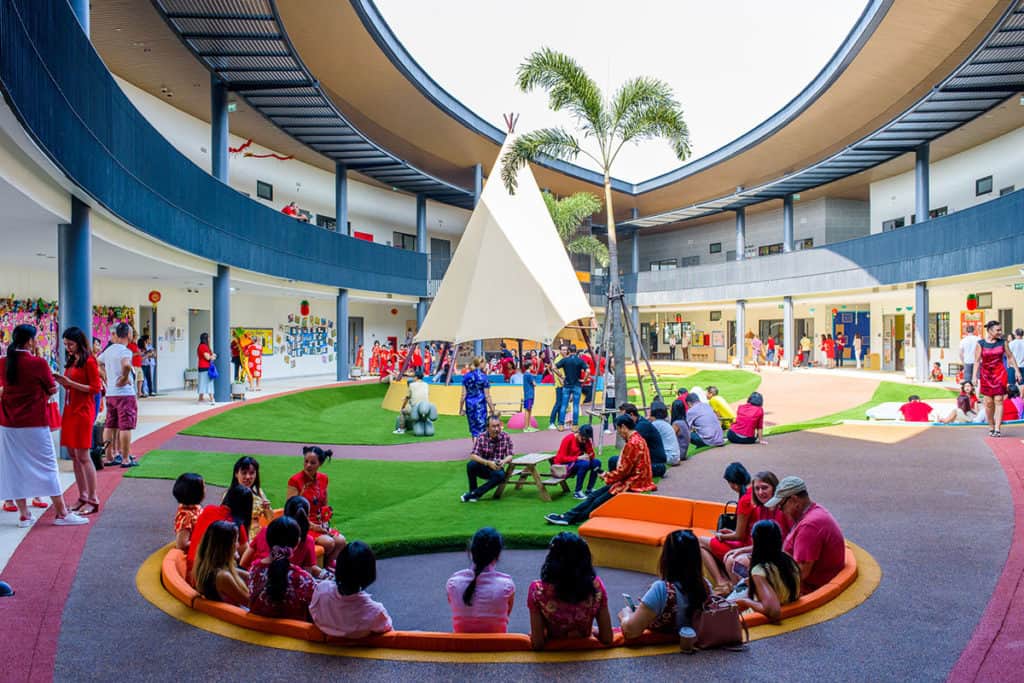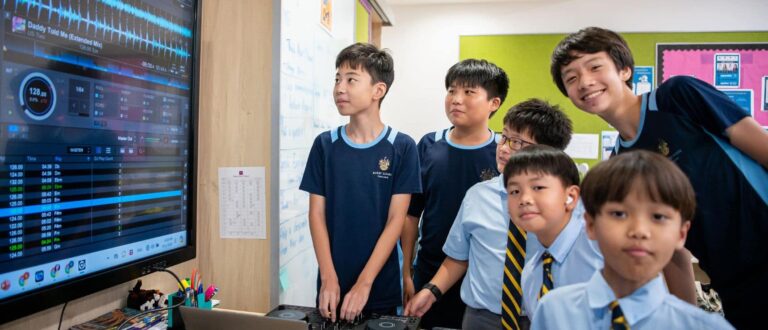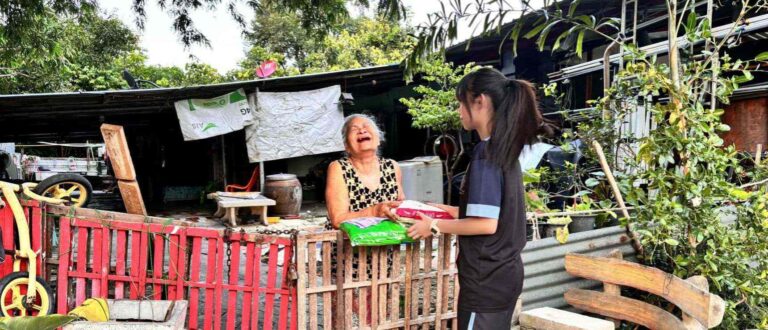Whether your child is at an international school learning in their second language, or just needs a bit of extra help developing their vocabulary, here are 4 ways you can help your child with language at home.
Watch the video
Read

Storybooks are one of the best ways to expose your child to the richness of language from an early age. Reading with your child each day (or, for older children, encouraging them to explore new, challenging literature by themselves) will develop an innate understanding of language and build vocabulary, as well as sparking creativity and giving children valuable space for escapism. School libraries are a brilliant resource for new reading materials.
Listen

Reading is key, but there are so many other ways to access language – and using a combination of these is very important. Listening is an excellent way for children to pick up language and nuance. Listen to the radio or podcasts with your child and discuss what they’ve heard afterwards. This helps them understand tricky language, but also gives them the analytical practice they need in all areas of school life.
Look

The arts are an incredibly emotive way to engage young learners and Look at pieces of art or wordless stories with your child and ask them to tell you what’s happening. Encourage pupils to look beyond the literal, make links, and take risks when observing. Take them further by asking explanatory ‘how’ and ‘why’ questions to delve deeper.
Write

Collaborative writing with your child – a story, a postcard, a poster, a play – is an ideal way to up-level vocabulary, as you can suggest synonyms and guide their thought. You can help your child make bland information exciting. Word displays at home can also nurture a more word-conscious, exploratory mind.
Rugby School Thailand is a co-educational British independent school for 2-18 year olds. To find out more visit www.rugbyschool.ac.th







